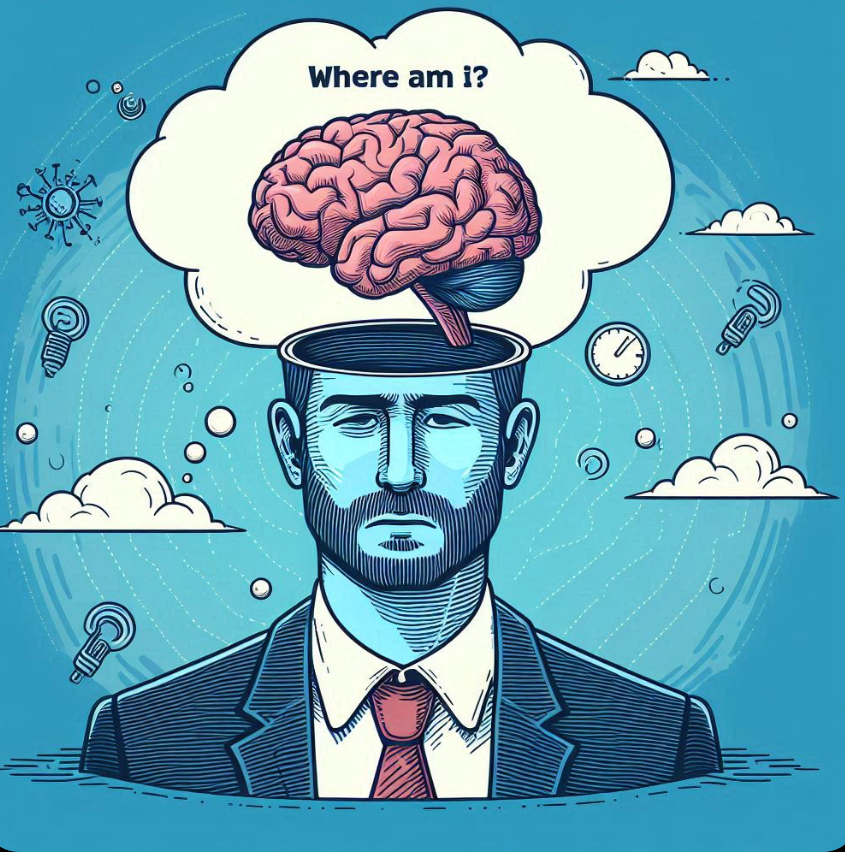The Sensory Maze
Our senses, while remarkable, are not perfect. They are subject to a myriad of limitations that can distort our perception of reality.
- Selective Perception: Our brains are bombarded with sensory information. To cope, we selectively attend to certain stimuli while ignoring others. This can lead to missed opportunities or misunderstandings.
- Sensory Adaptation: Our senses can become less sensitive to constant stimuli. For example, if you live near a busy road, you may eventually become less aware of the traffic noise.
- Illusions and Hallucinations: Our brains can misinterpret sensory information, leading to illusions or hallucinations. These can be caused by factors such as fatigue, stress, or certain substances.
- Cultural and Social Influences: Our cultural and social background can significantly influence our perception of the world. For example, people from different cultures may have different interpretations of colors, tastes, or emotions.
Beyond the Senses
Even after sensory information is processed, our minds play a crucial role in shaping our perception. Our memories, beliefs, and expectations can all influence how we interpret what we see, hear, feel, taste, and smell.
- Memory Bias: Our memories are not always accurate. We often remember events in a way that is consistent with our existing beliefs and expectations.
- Confirmation Bias: We tend to seek out information that confirms our existing beliefs and ignore information that contradicts them.
- Stereotypes: Our preconceived notions about people or groups can influence how we perceive them.
The Evolutionary Perspective
Imagine a deep-sea creature that has evolved to rely primarily on sound waves to navigate and interact with its environment. Its world is a symphony of clicks, whistles, and rumbles, a tapestry woven from acoustic signals. For this creature, sound is the primary tool of perception. Its reality is a world shaped by sound, a world that is vastly different from ours.
Similarly, humans have evolved to perceive the world in a way that is most useful for our survival and reproduction. Our senses have been shaped by millions of years of natural selection, adapting to the specific challenges and opportunities of our environment. This evolutionary perspective helps us understand why our perception is limited in certain ways.
The Flatlanders Analogy
To further illustrate the limitations of our perception, consider the classic thought experiment of Flatland. In this two-dimensional world, creatures can only perceive height and width, not depth. They are completely unaware of the third dimension and believe their world to be the entire universe.
Imagine a three-dimensional sphere passing through Flatland. To the Flatlanders, it would appear as a growing and shrinking circle. They would be unable to comprehend its three-dimensional nature or the fact that it is a sphere.
Similarly, as three-dimensional beings, we may be limited in our ability to perceive higher dimensions or aspects of reality that are beyond our sensory capabilities. It is possible that there are dimensions or phenomena that we are completely unaware of, just as the Flatlanders are unaware of the third dimension.
The Illusion of Objectivity
This analogy highlights the subjective nature of our perception. Just as the Flatlanders are limited by their two-dimensional perspective, we humans may be limited by our three-dimensional perspective. Our understanding of reality is shaped by the limitations of our senses and the constraints of our evolutionary history. We don’t see things as they are, we see things as we are.
Embracing Uncertainty
By recognizing the limitations of our perception, we can develop a deeper appreciation for the complexity and mystery of the universe. We can also embrace uncertainty and learn to live with the unknown, rather than striving for absolute certainty.
So, the next time you look out at the world, remember: what you see is not reality, but a carefully constructed illusion, shaped by your unique perspective and the limitations of your senses. It’s a mind-bending realization, but one that can set you free.

